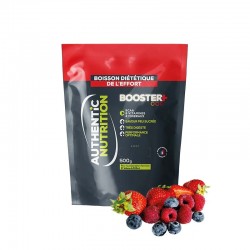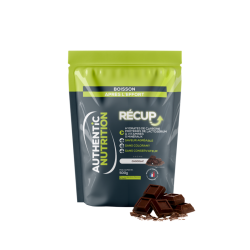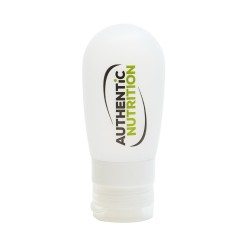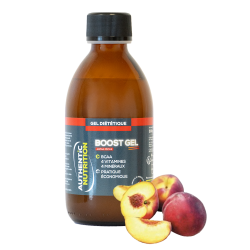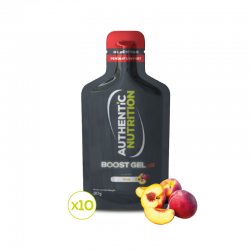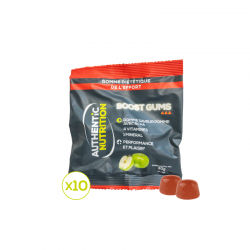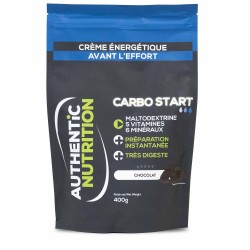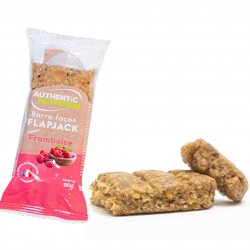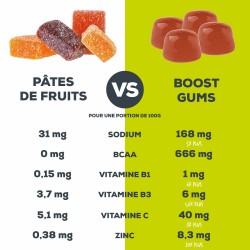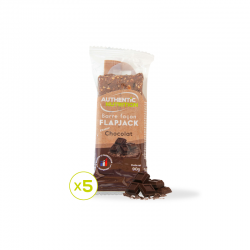Running in winter: our hydration and nutrition tips
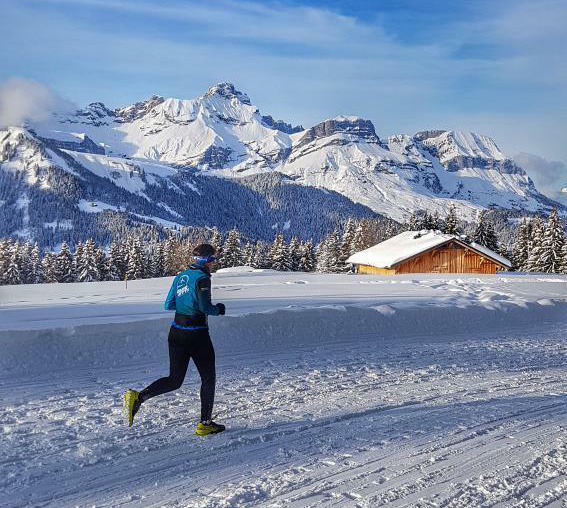
There's no season for running, and the cold won't stop even the most passionate among you! Discover our nutrition and hydration tips for running with peace of mind in winter.
How to hydrate in extreme cold?
In winter, even if we feel less of a need to drink than in summer, it is essential to stay well hydrated. Especially since breathing cold air accelerates dehydration since our body consumes a lot of water to humidify the inhaled air.
Hydration is essential before, during, and after exercise because we become dehydrated when we do physical activity, including in winter temperatures.
If you run in the mountains in winter (running or white trail running), this is even more true because the dryness of the mountain air increases water loss. It is therefore important to maintain a good water balance by regularly drinking drinks.
When warming up, hydrate yourself with small sips.
During your outing, we recommend consuming an isotonic BCAA-based sports drink, rich in glucose, such as Authentic Booster +.
A glycogen-boosting exercise drink . Isotonic, it contains amino acids (BCAAs),...
Tips to avoid drinks that are too ice cold:
In the mountains, on a trail run for example, water tends to freeze or be close to freezing, so this can cause thermal shock when drinking it. Therefore, we recommend having one flask with room-temperature water and another with lukewarm water. As the miles go by, the water in this second flask will have cooled down but will still be at an acceptable temperature for your body.
You can also protect your flasks or water bladder from the cold by slipping them under your clothes. You can wrap the tube of your water bladder with neoprene.
To be able to drink throughout the session, don't forget to blow into your teat (flask or water bladder).
Similarly, energy gels can harden in the cold and therefore become difficult to swallow. To avoid this, dilute them in a little warm water before you leave.
How to eat in extreme cold?
There are no specific foods to combat the cold. Shivering, the body's natural way of fighting the cold, quickly depletes carbohydrate stores, which, unlike fats, are very limited. Studies indicate that running in cold weather allows you to burn up to 30% more fat compared to the same session in milder weather.
It is therefore important to maintain sufficient glycogen stores by consuming more carbohydrates than usual with meals, and by having energy drinks or bars for the race.
Don't leave on an empty stomach! Eat preferably 2 to 3 hours before running so that digestion is complete by the time you leave. If you usually get up as soon as you get out of bed, have at least one light snack providing carbohydrates (fruit juice, fruit jellies, dried fruits, etc.) and a hot drink that will help your body cope with the cold.
As liquids can tend to harden or even freeze, opt for solid foods instead. The amount of solid foods you eat will depend on your habits and the type of race (distance/elevation ratio in particular): energy bar, dried fruits, etc.
Intake, whether solid or liquid, should always be in small quantities because digestion is difficult when running.
post-exercise hydration
Don't neglect the post-race! As soon as you return, drink regularly to rehydrate properly.
For a quick and optimal recovery, especially on long runs, opt for a snack made up of carbohydrates and proteins, to be eaten within 30 minutes of the effort. The Authentic Récup au chocolat is ideal: mixed with water, milk or consumed in a milkshake or smoothie, it will bring you comfort and indulgence after exercise!
Don't hesitate to check out all our recipes with Authentic Récup
Other foods good for recovery: drinkable yogurt with some dry biscuits or dried fruit, a slice of bread with a piece of cheese, rice pudding or rice cake...
Recovery Drink - Authentic Recovery
Post-workout recovery drink rich in protein, BCAAs, vitamins, and electrolytes (minerals) to...
preparation and equipment for running in winter
In addition to nutrition and hydration, it is also important to have suitable equipment and clothing for running in winter: 3 layers of clothing, a flashlight, trail poles, etc.
Not forgetting suitable training on snowy terrain if you want to practice white trail running (high altitude running, proprioception training, etc.).
To find out more, consult the advice of the Guidetti brand, dedicated to trail runner equipment.
You are now ready to face the winter cold! All you have to do is put on your sneakers, admire the magnificent landscapes, white for mountaineers, and enjoy yourself!
Source: article written with Emmanuelle Buisson, dietician-nutritionist at Authentic Nutrition


